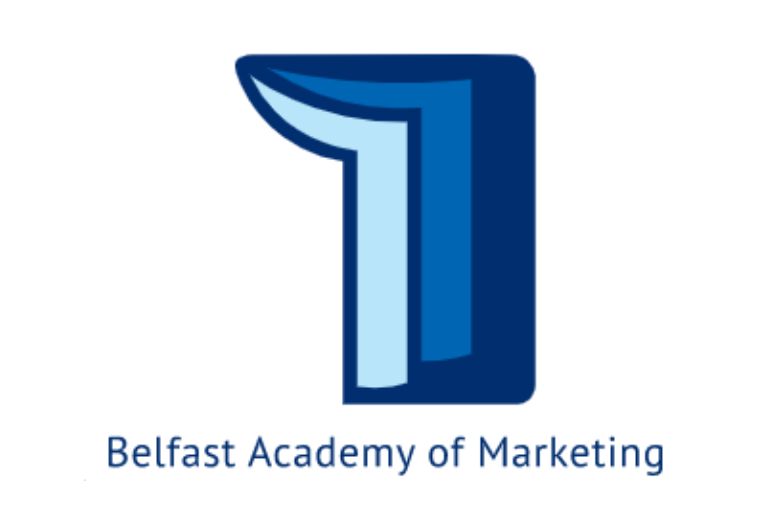Share on social

Anita Doris- CavanaghKelly's Advisory Team Manager
Manager of CavanaghKelly's Advisory team, Anita Doris discusses her role within CavanaghKelly and how she supports her clients through the current COVID-19 crisis.
Monday 30 March 2020

Three years ago, Anita Doris joined CavanaghKelly, one of Northern Ireland’s leading chartered accountancy practices. Having previously worked as an Actuary for many years at a global pension consultancy company in Belfast, the pressures of balancing a young family, a busy work schedule and a long daily commute, helped Anita to reconsider her career path. Now as Manager of their Advisory team, Anita discusses her role within CavanaghKelly and how she supports her clients through the current COVID-19 crisis.
The attraction of CavanaghKelly for Anita was the offer of specialist advice that larger firms provide, but at a more local level; “I saw that their staff knew their clients and understood their businesses which meant that they could offer sensible practical advice. The client base covers all sizes from large businesses to SMEs to sole traders. I saw the potential to take a sidestep in my career and still progress my career – and I haven’t looked back since!”.
Whilst offering the traditional accountancy services, Anita is involved in the corporate finance, business growth planning and public sector area of the business. Advising clients on typical corporate finance transactions such as M&As, due diligence, business valuations and funding applications. However, CavanaghKelly also offer many other services such as forensic accounting, company secretarial services and legal services such as shareholder agreements, wills and powers of attorney. In addition, Anita also works with businesses of all sizes to improve profit and operational performance and corporate governance within the business. Often succession planning is a key area for Anita’s job role, where businesses seek advice where directors or owners wish to retire and they want to review their options.
However, in this current COVID-19 crisis, Anita find that much of the team’s time in recent weeks has been spent helping clients to navigate through the everchanging environment. The UK Government and Stormont Executive have provided significant support packages but businesses must firstly understand how COVID-19 will impact their business and then decide what support is most appropriate for them.
Anita affirms that the challenge for business owners is acting with sufficient strength and speed so that they can prevent the current pandemic from leaving irreversible damage on their business.
Anita provides some simple steps to take to allow others to quantify the financial impact of COVID-19 and identify what financial support businesses will need over the next few months.
1. Consider how your income will be impacted
• Where businesses have temporality closed, review customer balances owing to determine whether a payment can be made over the next few months.
• Where businesses are open, consider what work is currently in the system, whether you can complete it and when you will get paid for it.
• Where businesses are open, consider what work is currently in the system, whether you can complete it and when you will get paid for it.
2. Consider your expenditure and how it can be reduced.
• Review your expenditure to assess where it can be reduced.
• Consider all non-essential overheads
• Speak to your bank or HP provider to request a payment holiday on loans
• Consider all non-essential overheads
• Speak to your bank or HP provider to request a payment holiday on loans
• Speak to you landlord to negotiate a rent holiday or reduction
• Contact your utility provider to discuss payments.
• Be aware of the Government assistance available i.e. rates holiday, deferment of VAT, and, self-employed income tax payments under the self-assessment systems due in July 2020 will be deferred to January 2021.
• Contact your utility provider to discuss payments.
• Be aware of the Government assistance available i.e. rates holiday, deferment of VAT, and, self-employed income tax payments under the self-assessment systems due in July 2020 will be deferred to January 2021.
3. Review your staffing requirements
• Consider what your staffing requirement is over the next 3 months
• Consider the Coronavirus Job Retention Scheme if required
• Businesses may need short term capital support to pay wages until the scheme is implemented.
• The government will provide a grant to eligible self-employed individuals or partnerships, worth 80% of their profits up to a cap of £2,500 per month.
• Consider the Coronavirus Job Retention Scheme if required
• Businesses may need short term capital support to pay wages until the scheme is implemented.
• The government will provide a grant to eligible self-employed individuals or partnerships, worth 80% of their profits up to a cap of £2,500 per month.
4. Following a review of income and expenditure, prepare 3 – 6 month cash flow forecasts to determine what your finance requirement is over the short term.
Once you have carried out the steps above, you will have a clearer picture of what your cashflow needs are. You can then consider the options available to you:
• Small business grants: A grant of £10,000 will be provided to all small businesses who are eligible for the Small Business Rate Relief Scheme
• Retail, hospitality and tourism grant: A grant of £25,000 will be provided to companies in the retail, tourism and hospitality sectors with a rateable value between £15,000 and £51,000.
• Your bank: Many banks are offering deferred loan repayments, interest only periods, overdraft extensions or increases on current loan facilities for current customers. Speak to your relationship manager to discuss your finance requirement – show them that you have reviewed your cashflow requirements and undertaken a cost reduction exercise.
• Coronavirus Business Interruption Loan Scheme: This loan scheme has been introduced by the government to support SMEs to access bank lending and overdrafts. It is offered by many of the main stream lenders. Again, remember that this is a loan scheme and therefore the debt must be repaid! It may be possible to use the scheme for short term support to pay wages while the retention scheme is implemented.
5. Plan for how to re-open your business or return to full capacity
• Many businesses will require capital when they return to business, this may be required to replenish stock or to pay creditors that are outside credit terms
• Plan for this early and again, quantify the finance required and consider the finance options set out above.
6. Consider what you can do while your business is closed or operating at reduced capacity.
• Plan for this early and again, quantify the finance required and consider the finance options set out above.
6. Consider what you can do while your business is closed or operating at reduced capacity.
In this difficult time, businesses may be forced to develop new ways of doing business. Consider how you can do business differently – this may be operational efficiencies, online opportunities or new lines of business. Take the time now to consider future strategy, look at the things that you didn’t have the time to do before, everyone has a list! It’s important to take the positive out of every situation so spend this downtime trying to improve your business.
But most of all, it’s a time to keep ourselves and our families safe.
For more detailed information from CavanaghKelly please follow this link: https://www.cavanaghkelly.com/news/summary-of-covid-19-support-for-business
Monday 30 March 2020



 Contact us
Contact us
 Share on social
Share on social Share with a friend
Share with a friend Facebook
Facebook LinkedIn
LinkedIn
 Twitter
Twitter




















 Get in touch with us
Get in touch with us